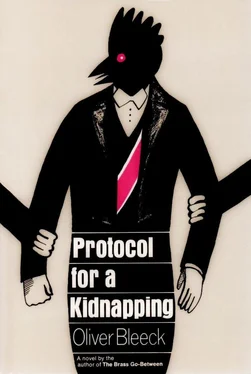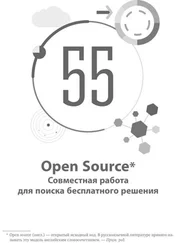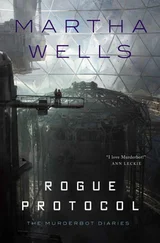I turned partially in the seat. “The gentleman at the wheel and the one next to you are colleagues of mine. The young lady in the rear is your new granddaughter, Gordana Panić. The papers that I have which may get you out of the country say that you’re Anton Pernik, a poet by trade.”
Tavro muttered something. “What’d he say?” I asked Arrie.
“That Pernik is a discredited poet.”
“He’s also a dead one,” I said.
“But his papers are still good?” Tavro asked, leaning forward.
“They’re official, if that’s what you mean.”
“Did you kill him?”
“No,” I said, “I didn’t kill him.”
“If you have his papers, it is a logical question,” Tavro said. “Who is the other woman?”
“This one?” I said, turning to look at Arrie.
“Yes.”
“She’s with the CIA.”
This time Tavro didn’t mutter his comment, and I didn’t ask for a translation. Profanity can be a universal language.
“You’re telling everybody, aren’t you?” Arrie said to me.
“I thought you could take the credit in case anything goes right.”
“There doesn’t seem to be much danger of that,” Wisdom said. “By the way, where are we headed?”
“Someplace safe, I hope,” I told him. “If I can find it again.”
There wasn’t much further conversation, especially after I got us lost twice. I kept checking the rear window for possible tails, but there seemed to be none. The night had grown much colder and it looked as if it might snow again. We spotted only an occasional pedestrian, bundled up against the cold and hurrying for home, as we threaded deeply into Belgrade’s working-class residential district. It was nearly midnight before I found the narrow street that I was looking for. It looked almost deserted except for a dim light that burned in one house.
“We should not come here,” Tavro said, looking around at the street.
“Stop at the corner,” I told Wisdom. I turned in the seat to face Tavro. “Why not?” I said.
“It is not safe.”
“It’s safer than anyplace else I can think of,” I said. “I don’t know of any hotel that would check us in without a lifted eyebrow and a quick call to the police.”
“I must protest it,” Tavro said in the stubborn tone of a man not much accustomed to opposition. “It is far too dangerous.”
“Whose house is it?” Knight asked.
“An American’s,” I said.
“Bill Jones?” Wisdom said.
“Yes.”
“What’s he got to do with us?”
“Nothing,” I said. “We have to stay out of sight from now until nine tomorrow night when we meet the kidnappers in Sarajevo. We haven’t got anyplace to go and the cops are probably looking for us. They’ll be looking for us in earnest when they discover that Pernik’s dead and if we’re unlucky, that won’t be too long from now.”
“What will you ask of Jones?” Tavro said.
“I’m not going to ask him to take us in,” I said. “I’m just going to ask him if he knows where we can hole up until there’s some traffic on the road to Sarajevo.”
“He will not like it,” Tavro said.
“You’d better come with me,” I said. “Maybe you can encourage him to like it.”
We got out of the car and approached Jones’s house. His was the only light on in the street which was utterly quiet except for the sound of the wind. I knocked at the door. Jones opened it a scant four inches and peered out at me. He continued to look at me for several moments before he said, “What do you want, St. Ives?”
“Tavro’s with me,” I said. “We need to talk to you.”
“It’s late,” he said.
“It won’t take long.”
He opened the door wide enough for us to enter and we followed him into the sitting room. He turned on a light. He wore pajamas and a dark gray dressing gown. On his feet were a pair of old slippers. “This isn’t smart,” he said.
“That is what I told him,” Tavro said.
“We need a place to stay until early morning,” I said.
Jones shook his head. “Not here.”
“I don’t mean here,” I said. “There’s six of us. We have to hole up.”
“Six of you?” he said. “What the hell is it, a convention?”
“It is lack of planning,” Tavro said and started to say something else until he caught my look.
Jones sank into the plum-colored chair and looked at the head of the wolf on the wall. “Remember when we got that wolf?” he said to Tavro.
“I remember.”
“Nine years ago, wasn’t it?”
“Nine or ten.”
“I happened to be looking at it today.”
“Why?” Tavro said.
“My wife wants me to move it out of the sitting room. So I was looking at it. Close. Guess what I found.”
“I don’t know.”
“A bug.” Jones reached into the pocket of his dressing gown and tossed something to Tavro who caught it and then dropped it. He picked it up and looked at it curiously.
“You removed it?” he asked.
“Sure I removed it. I was going to ask you about it when I saw you.”
Tavro looked at it closely. “It is a new model,” he said. “I am not familiar with it.”
“When did you find it?” I said.
“This afternoon, right after I got through talking to you.”
“It might not have been too wise to have removed it,” Tavro said.
Jones looked at him and nodded. “There’re a couple of other things that might not be too wise that I’ve wanted to talk to you about,” he said. “Now that St. Ives is here, I know we’d better talk about them.”
“What about someplace that we can hole up?” I said.
Jones gave me a cold look. “You in a hurry?”
“I’m in a hurry,” I said.
“If you’ll listen a minute, you might not be in a hurry to go anywhere.” He turned back to Tavro who, like me, was still standing. “What I want to talk about is—”
The woman’s scream interrupted him. It came from the rear of the house. Jones was on his feet and moving fast toward a closed door when we heard the flat, sharp sound of a single shot. Jones jerked the door open and the tortoiseshell cat scampered into the room, its tail swollen double by fear and excitement. Two men followed the cat into the room. Both carried automatics. They were young and one had brown hair and brown eyes and a new-looking scar on his left cheek. The other one was blond with blue eyes. The one with the scar on his cheek shot Jones twice through the chest. Then he turned the gun on me and I watched his finger with a kind of paralyzed fascination as he tried to make up his mind whether to pull the trigger. Instead, he looked at the blond with the blue eyes who had his automatic pointed at Tavro. The blond man shook his head. They motioned us toward the corner near the tile stove. The brown-haired one knelt by Jones and went through the three pockets of the dead man’s dressing gown. When he didn’t find what he was looking for he shook his head at the blond man who snapped something at Tavro who held out his right hand, palm up. In it lay the bugging device. The blond man took it and put it away in a pocket.
They both backed toward the door that led to the rear of the house. The blond one went through first. The one with the brown hair hesitated, as if still trying to decide whether to shoot. After a moment, he decided not to and backed from the room, slamming the door after him. Neither Tavro nor I said anything until we heard another door close, far back in the house.
“They’ve gone,” Tavro said.
“Who were they?”
“I don’t know,” he said.
“Do you know why?”
“No.”
“I wonder if Jones did.”
“The woman who screamed,” Tavro said.
“His wife?”
“Probably.”
Читать дальше












